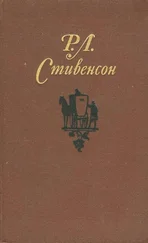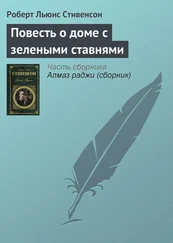Роберт Стивенсон - Memoir of Fleeming Jenkin
Здесь есть возможность читать онлайн «Роберт Стивенсон - Memoir of Fleeming Jenkin» — ознакомительный отрывок электронной книги совершенно бесплатно, а после прочтения отрывка купить полную версию. В некоторых случаях можно слушать аудио, скачать через торрент в формате fb2 и присутствует краткое содержание. Жанр: literature_19, foreign_antique, foreign_prose, Биографии и Мемуары, на английском языке. Описание произведения, (предисловие) а так же отзывы посетителей доступны на портале библиотеки ЛибКат.
- Название:Memoir of Fleeming Jenkin
- Автор:
- Жанр:
- Год:неизвестен
- ISBN:нет данных
- Рейтинг книги:3 / 5. Голосов: 1
-
Избранное:Добавить в избранное
- Отзывы:
-
Ваша оценка:
- 60
- 1
- 2
- 3
- 4
- 5
Memoir of Fleeming Jenkin: краткое содержание, описание и аннотация
Предлагаем к чтению аннотацию, описание, краткое содержание или предисловие (зависит от того, что написал сам автор книги «Memoir of Fleeming Jenkin»). Если вы не нашли необходимую информацию о книге — напишите в комментариях, мы постараемся отыскать её.
Memoir of Fleeming Jenkin — читать онлайн ознакомительный отрывок
Ниже представлен текст книги, разбитый по страницам. Система сохранения места последней прочитанной страницы, позволяет с удобством читать онлайн бесплатно книгу «Memoir of Fleeming Jenkin», без необходимости каждый раз заново искать на чём Вы остановились. Поставьте закладку, и сможете в любой момент перейти на страницу, на которой закончили чтение.
Интервал:
Закладка:
His education, in the formal sense, began at Jedburgh. Thence he went to the Edinburgh Academy, where he was the classmate of Tait and Clerk Maxwell, bore away many prizes, and was once unjustly flogged by Rector Williams. He used to insist that all his bad schoolfellows had died early, a belief amusingly characteristic of the man’s consistent optimism. In 1846 the mother and son proceeded to Frankfort-on-the-Main, where they were soon joined by the father, now reduced to inaction and to play something like third fiddle in his narrow household. The emancipation of the slaves had deprived them of their last resource beyond the half-pay of a captain; and life abroad was not only desirable for the sake of Fleeming’s education, it was almost enforced by reasons of economy. But it was, no doubt, somewhat hard upon the captain. Certainly that perennial boy found a companion in his son; they were both active and eager, both willing to be amused, both young, if not in years, then in character. They went out together on excursions and sketched old castles, sitting side by side; they had an angry rivalry in walking, doubtless equally sincere upon both sides; and indeed we may say that Fleeming was exceptionally favoured, and that no boy had ever a companion more innocent, engaging, gay, and airy. But although in this case it would be easy to exaggerate its import, yet, in the Jenkin family also, the tragedy of the generations was proceeding, and the child was growing out of his father’s knowledge. His artistic aptitude was of a different order. Already he had his quick sight of many sides of life; he already overflowed with distinctions and generalisations, contrasting the dramatic art and national character of England, Germany, Italy, and France. If he were dull, he would write stories and poems. ‘I have written,’ he says at thirteen, ‘a very long story in heroic measure, 300 lines, and another Scotch story and innumerable bits of poetry’; and at the same age he had not only a keen feeling for scenery, but could do something with his pen to call it up. I feel I do always less than justice to the delightful memory of Captain Jenkin; but with a lad of this character, cutting the teeth of his intelligence, he was sure to fall into the background.
The family removed in 1847 to Paris, where Fleeming was put to school under one Deluc. There he learned French, and (if the captain is right) first began to show a taste for mathematics. But a far more important teacher than Deluc was at hand; the year 1848, so momentous for Europe, was momentous also for Fleeming’s character. The family politics were Liberal; Mrs. Jenkin, generous before all things, was sure to be upon the side of exiles; and in the house of a Paris friend of hers, Mrs. Turner – already known to fame as Shelley’s Cornelia de Boinville – Fleeming saw and heard such men as Manin, Gioberti, and the Ruffinis. He was thus prepared to sympathise with revolution; and when the hour came, and he found himself in the midst of stirring and influential events, the lad’s whole character was moved. He corresponded at that time with a young Edinburgh friend, one Frank Scott; and I am here going to draw somewhat largely on this boyish correspondence. It gives us at once a picture of the Revolution and a portrait of Jenkin at fifteen; not so different (his friends will think) from the Jenkin of the end – boyish, simple, opinionated, delighting in action, delighting before all things in any generous sentiment.
‘February 23, 1848.‘When at 7 o’clock to-day I went out, I met a large band going round the streets, calling on the inhabitants to illuminate their houses, and bearing torches. This was all very good fun, and everybody was delighted; but as they stopped rather long and were rather turbulent in the Place de la Madeleine, near where we live’ [in the Rue Caumartin] ‘a squadron of dragoons came up, formed, and charged at a hand-gallop. This was a very pretty sight; the crowd was not too thick, so they easily got away; and the dragoons only gave blows with the back of the sword, which hurt but did not wound. I was as close to them as I am now to the other side of the table; it was rather impressive, however. At the second charge they rode on the pavement and knocked the torches out of the fellows’ hands; rather a shame, too – wouldn’t be stood in England..
[At] ‘ten minutes to ten.. I went a long way along the Boulevards, passing by the office of Foreign Affairs, where Guizot lives, and where to-night there were about a thousand troops protecting him from the fury of the populace. After this was passed, the number of the people thickened, till about half a mile further on, I met a troop of vagabonds, the wildest vagabonds in the world – Paris vagabonds, well armed, having probably broken into gunsmiths’ shops and taken the guns and swords. They were about a hundred. These were followed by about a thousand (I am rather diminishing than exaggerating numbers all through), indifferently armed with rusty sabres, sticks, etc. An uncountable troop of gentlemen, workmen, shopkeepers’ wives (Paris women dare anything), ladies’ maids, common women – in fact, a crowd of all classes, though by far the greater number were of the better dressed class – followed. Indeed, it was a splendid sight: the mob in front chanting the “ Marseillaise ,” the national war hymn, grave and powerful, sweetened by the night air – though night in these splendid streets was turned into day, every window was filled with lamps, dim torches were tossing in the crowd.. for Guizot has late this night given in his resignation, and this was an improvised illumination.
‘I and my father had turned with the crowd, and were close behind the second troop of vagabonds. Joy was on every face. I remarked to papa that “I would not have missed the scene for anything, I might never see such a splendid one,” when plong went one shot – every face went pale — r-r-r-r-r went the whole detachment, [and] the whole crowd of gentlemen and ladies turned and cut. Such a scene! – ladies, gentlemen, and vagabonds went sprawling in the mud, not shot but tripped up; and those that went down could not rise, they were trampled over… I ran a short time straight on and did not fall, then turned down a side street, ran fifty yards and felt tolerably safe; looked for papa, did not see him; so walked on quickly, giving the news as I went.’ [It appears, from another letter, the boy was the first to carry word of the firing to the Rue St. Honoré; and that his news wherever he brought it was received with hurrahs. It was an odd entrance upon life for a little English lad, thus to play the part of rumour in such a crisis of the history of France.]
‘But now a new fear came over me. I had little doubt but my papa was safe, but my fear was that he should arrive at home before me and tell the story; in that case I knew my mamma would go half mad with fright, so on I went as quick as possible. I heard no more discharges. When I got half way home, I found my way blocked up by troops. That way or the Boulevards I must pass. In the Boulevards they were fighting, and I was afraid all other passages might be blocked up.. and I should have to sleep in a hotel in that case, and then my mamma – however, after a long détour , I found a passage and ran home, and in our street joined papa.
‘.. I’ll tell you to-morrow the other facts gathered from newspapers and papa… Tonight I have given you what I have seen with my own eyes an hour ago, and began trembling with excitement and fear. If I have been too long on this one subject, it is because it is yet before my eyes.
‘Monday, 24.‘It was that fire raised the people. There was fighting all through the night in the Rue Notre Dame de Lorette, on the Boulevards where they had been shot at, and at the Porte St. Denis. At ten o’clock, they resigned the house of the Minister of Foreign Affairs (where the disastrous volley was fired) to the people, who immediately took possession of it. I went to school, but [was] hardly there when the row in that quarter commenced. Barricades began to be fixed. Everyone was very grave now; the externes went away, but no one came to fetch me, so I had to stay. No lessons could go on. A troop of armed men took possession of the barricades, so it was supposed I should have to sleep there. The revolters came and asked for arms, but Deluc (head-master) is a National Guard, and he said he had only his own and he wanted them; but he said he would not fire on them. Then they asked for wine, which he gave them. They took good care not to get drunk, knowing they would not be able to fight. They were very polite and behaved extremely well.
Читать дальшеИнтервал:
Закладка:
Похожие книги на «Memoir of Fleeming Jenkin»
Представляем Вашему вниманию похожие книги на «Memoir of Fleeming Jenkin» списком для выбора. Мы отобрали схожую по названию и смыслу литературу в надежде предоставить читателям больше вариантов отыскать новые, интересные, ещё непрочитанные произведения.
Обсуждение, отзывы о книге «Memoir of Fleeming Jenkin» и просто собственные мнения читателей. Оставьте ваши комментарии, напишите, что Вы думаете о произведении, его смысле или главных героях. Укажите что конкретно понравилось, а что нет, и почему Вы так считаете.







